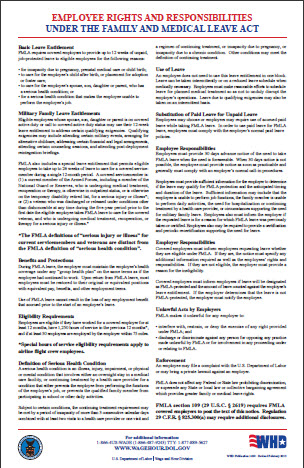By Mark Wiletsky and Steve Gutierrez
Small businesses beware: your employees now have more incentive to sue you. As of January 1, 2015, employees can recover compensatory and punitive damages for employment discrimination claims against businesses that employ between one to fourteen people under Colorado’s Job Protection and Civil Rights Enforcement Act of 2013, signed into law by Governor John Hickenlooper on Monday, May 6, 2013. But don’t despair. By taking some proactive steps now, businesses can minimize their exposure to potential claims.
Increased Exposure for Small Employers
Colorado’s new anti-discrimination law changes the landscape for small employers by allowing compensatory and punitive damages against Colorado’s small businesses (with 1-14 employees), along with attorneys’ fees and costs to the employee if he or she prevails, back pay, front pay, interest, and other potential relief. Thankfully, the new Colorado law contains some safeguards against outrageous damage awards that would likely put small employers out of business. For businesses with 1-4 employees, compensatory and punitive damages are capped at $10,000. For businesses with 5-15 employees, such damages are capped at $25,000. Businesses with greater than 15 employees are subject to the existing damages caps found in the federal anti-discrimination laws.
The availability of these damages to employees of businesses with fewer than 15 employees will likely result in more discrimination cases filed in Colorado against small businesses, significantly raising the potential exposure for small business owners. That is especially true given that such claims may be filed in state court, which is often viewed by attorneys representing employees as a more favorable forum for such claims.
Age Discrimination No Longer Cut Off at Age 70
The Job Protection and Civil Rights Enforcement Act of 2013 also eliminates the age 70 cutoff for age discrimination claims brought under Colorado law. This brings the state law into line with the federal Age Discrimination in Employment Act which does not have an upper age limit. Consequently, employees age 40 and older are protected from employment discrimination under both state and federal law.
Good Faith Efforts May Avoid Punitive Damages
Under the new Colorado law, employers will not be subject to punitive damages if they can demonstrate good-faith efforts to prevent discriminatory and unfair employment practices in the workplace. In addition, no punitive damages are available in a lawsuit involving a claim of failure to make a reasonable accommodation for a disability if the employer can demonstrate good-faith efforts to identify and make a reasonable accommodation that would provide the disabled employee with an equally effective opportunity and would not cause an undue hardship on the employer’s operation. Small businesses should begin those good-faith efforts now so that policies and procedures to prevent and respond to discrimination are in place when the law goes into effect.
Steps Small Businesses Should Take to Minimize Risk
Unfortunately for small businesses, the mere threat of a lawsuit, however meritless, may stretch tight resources to the breaking point. That is why it is so important to take proactive measures now, which will help minimize the risk of such lawsuits. Among other things, small businesses should:
1) Adopt and distribute policies that prohibit discrimination, harassment, and retaliation in the workplace. Require new and existing employees to acknowledge their receipt of these policies, preferably on an annual basis.
2) Train supervisors, managers and employees. Everyone in the workplace should be trained on your anti-discrimination policies and procedures with specialized training provided to supervisors and managers who must recognize harassment and discrimination and know what to do when they observe it or receive a complaint. In small workplaces, dealing with complaints of discrimination or retaliation can be difficult. Still, if you address it promptly and appropriately, you will be in a better position to avoid or defend against a claim.
3) Document performance issues. We often see meritless lawsuits filed because legitimate performance concerns were not shared with the employee or appropriately documented. If an employee has performance issues, be sure to get it in writing. Focus on the problem, give concrete examples, and warn the employee that a failure to achieve immediate and sustained improvement may result in termination.
4) Arbitration agreements. Consider whether it would be appropriate to have employees sign an arbitration agreement. Such agreements take discrimination claims out of the civil court system, and generally allow for a more streamlined resolution. However, arbitration is not necessarily cheaper than a court proceeding; in fact, in some cases it might cost more. Be sure to consider all the benefits and burdens of arbitration before relying on such agreements. And if you prefer arbitration, make sure your agreement complies with all applicable legal requirements.
Essentially, small employers need the same policies and procedures to deal with discrimination as larger employers do, even though many smaller employers simply do not have the same resources. Take the next 18 months before the law becomes effective to educate yourself, your supervisors and your employees on discrimination issues and take the steps that will help minimize your risk to the damages that will be available soon to aggrieved employees.

